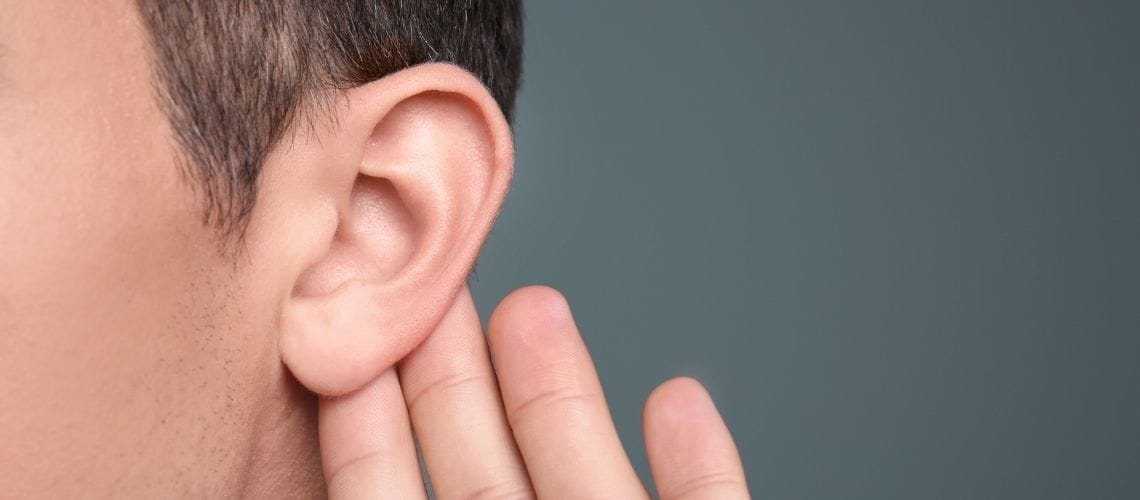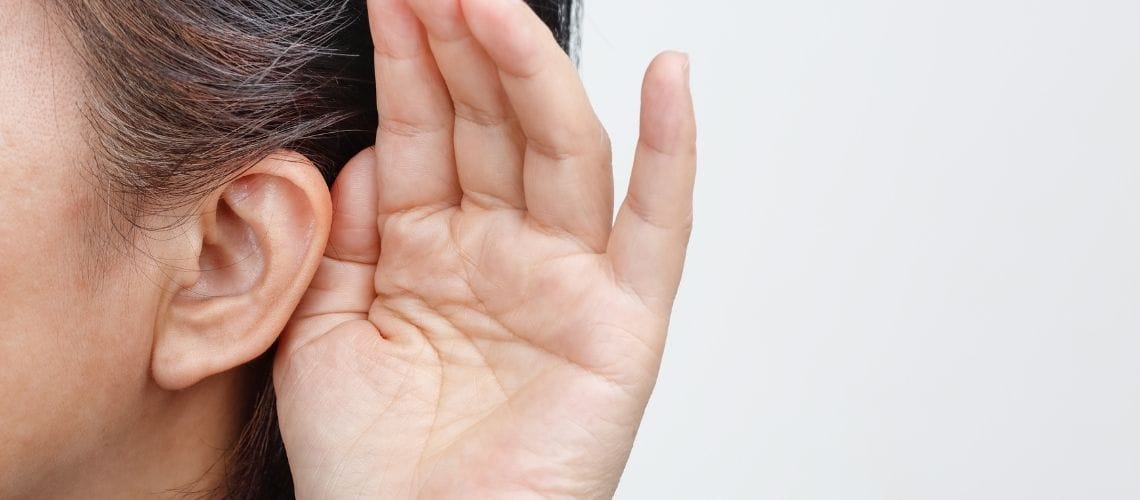Gençlerde ve genç yetişkinlerde işitme kaybı genellikle göz ardı edilen bir sağlık sorunudur. Çoğunlukla bu yaş grubunda beklenmedik bir durum olarak karşımıza çıkar. İşitme kaybı ergenlerde sosyal izolasyon, akademik zorluklar ve özgüven problemleri gibi ciddi sorunlara yol açabilir. Dolayısıyla bu sorunun teşhis ve tedavisi hayati önem taşır. Ayrıca bu durumun genç bireyler üzerindeki psikolojik etkilerini derinlemesine anlamak gerekmektedir. Böylece aileler ve eğitimciler daha etkili destek mekanizmaları geliştirebilir. Bu süreçte işitme kaybının nedenleri kadar psikolojik sonuçları da önemlidir.

Doctor Audiologist Emel Uğur
What Are the Causes of Hearing Loss in Young People?
Hearing loss in young adults can occur across a wide spectrum, from inner ear structures to outer ear components. The underlying causes of hearing loss vary, and this condition can create deep psychological and social effects on adolescents. Problems in the inner ear generally lead to more permanent hearing losses, while outer ear problems can sometimes be treatable. Specifically, the conditions that cause hearing loss in young adults are as follows:
- Congenital defects
- Ear infections
- Autoimmune diseases
- Head traumas
- Diseases
- Exposure to high noise levels
Each of these factors can affect the ability to hear in different ways. For example, congenital defects usually cause permanent hearing problems, whereas ear infections can be corrected with treatment. Autoimmune diseases, on the other hand, can cause hearing loss by damaging the inner ear. Head traumas can directly affect the hearing nerves, which leads to a reduction in hearing ability.
Today, what is particularly concerning among young people is prolonged exposure to high noise levels. The use of headphones is an example of this issue. Headphones transmit sound directly to the ear canal, resulting in exposure to higher sound levels. The low capacity to block background noise leads young people to increase the volume even further. In addition, since devices like MP3 players are suitable for long-term use, young people may continue to use these devices even while sleeping.
Research shows that this constant exposure to high noise levels can damage the delicate structure of the inner ear and eventually lead to hearing loss. This situation can negatively affect the social interactions and academic performance of young adults. Young people experiencing hearing loss may face problems such as social isolation, academic difficulties, and a lack of self-confidence. Therefore, the early diagnosis and effective management of hearing loss are of great importance.
Hearing Loss Levels in Young Adults: How to Understand Them?
Hearing loss in young adults can appear at different levels, and each level affects an individual’s daily life and psychology in different ways. The onset of hearing loss is often unnoticed and becomes more apparent over time.
Very Mild / Mild Hearing Loss:
- Difficulty hearing lower sounds, such as whispers or the rustling of leaves.
- Difficulty following conversations in crowded environments.
- Hearing aids provide listening comfort.
Moderate Hearing Loss:
- Missing some normal speech sounds, especially high-frequency (treble) sounds.
- Increased listening effort
- They benefit greatly from hearing aids.
Severe Hearing Loss:
- They cannot hear any speech sounds, thus requiring visual components of speech, including lip reading.
- In high-noise environments, for example, they cannot hear sounds such as traffic or machinery in the workplace.
- They gain limited benefit from hearing aids.
Total Hearing Loss:
- They cannot hear any speech or environmental sounds.
- They benefit very little from hearing aids; they should be individually evaluated to determine if they are candidates for implantation.
Hearing loss deeply affects the social and emotional lives of young adults. For instance, individuals with mild hearing loss may experience slight misunderstandings during social interactions, while for those with severe hearing loss, communication can be very challenging. This situation can negatively affect their self-confidence and sense of independence.
Furthermore, the psychological effects of hearing loss also depend on the quality of the individual’s social environment and support systems. A supportive family and circle of friends can help young people with hearing loss manage these challenges more effectively. On the other hand, young adults who lack such support may face the risk of isolation and depression.
What Are the Societal Effects of Hearing Ability?
Hearing ability plays a critical role in the social interactions and self-identity of young adults. Hearing is a fundamental element in the relationships that individuals form with their social environment. Young people with hearing loss often miss social/emotional cues in conversations. Consequently, the quality of communication and interaction is negatively affected. Below, the social importance of hearing and its effects on young adults are discussed in detail.
- Physical Characteristics: People can gather information about each other’s physical traits from the tone of their voice. The voice is an important tool used to understand an individual’s height, age, and gender.
- Accents: Accents provide important clues about individuals’ cultural and geographical backgrounds. They deepen the meaning of interpersonal relationships in social environments and the workplace.
- Speech Profiles: Individuals develop different speaking styles for various social and professional situations:
- Formality and seriousness are emphasized in the workplace.
- At home, a more intimate and relaxed language is used.
- Hearing loss makes it difficult to distinguish these registers, which can lead to difficulties in social interactions.
- Emotional Transfer: Conversations reflect individuals’ internal emotional states. This is particularly important for strengthening emotional bonds in social relationships. Young people with hearing impairments may miss these emotional cues, which can lead to misunderstandings in social interactions.
The critical nature of hearing ability in social communication shows that hearing loss is not merely a physical disability. This situation can seriously affect the social, academic, and professional lives of young adults. For young people with hearing loss, the challenges they face in society are not limited to their ability to communicate; they may also experience isolation from their social circles, difficulties in relationships with peers, and disruptions in identity development, among various other social and psychological issues. Therefore, it is of great importance to develop strategies to help young people adapt to this condition without underestimating the effects of hearing loss.
How Does Congenital Hearing Loss Affect Learning?
The challenges experienced by individuals with congenital hearing loss in their learning processes are influenced by various factors such as the age at which the hearing loss is diagnosed, the age at which intervention occurs, whether special education support is provided, the way the family accepts the process, and the methods of support used.
Language and communication skills begin to develop from birth. Babies and children with hearing loss experience a learning handicap proportional to the degree of their hearing loss. If diagnosis, treatment, and rehabilitation processes are initiated at the right time, and if the parental situation is brought under control, hearing loss can cease to be a handicap. The common goal of audiologists and ENT physicians working in hearing health is to ensure that babies and children with hearing loss develop in harmony with their peers. If neural pruning processes are missed, if early and proper interventions are not implemented, or if the family does not sufficiently support the child, hearing loss can become an obstacle.
The time families spend with their children, the amount of speech, the content of speech, and the richness or paucity of the vocabulary used have a primary impact on the child’s acquisition of language models and academic development. The right intervention at the right time creates an opportunity for the child to reach their individual potential.
What Are the Psychological Consequences of Untreated Hearing Loss in Young Adults?
Regardless of the age at which hearing loss begins, if it is not addressed, it leads to various outcomes. In young people and young adults, hearing loss can result in various psychological consequences. This is particularly evident in cases where the hearing loss is new or progressive. When discussing the psychological consequences, the emotional and cognitive changes that young people may experience are emphasized.
- Uncertainty: Young people with hearing loss may struggle to make sense of their surroundings because they are deprived of the information provided by sound. The absence of everyday sounds creates uncertainty even in simple daily tasks, which can lead to confusion.
- Loss of Control: Hearing loss is not just a reduction in sound intensity. This reduction also means an inability to perceive the stereoscopic features of sound. Consequently, the presence of hearing loss can affect environmental integration. Even in a familiar social and physical environment, they may experience difficulties, and it can become unpredictable. This situation causes them to feel insecure even in familiar surroundings.
- Loss of Self-Confidence: Hearing loss results in a loss of self-confidence. While this is true for all age groups, it is particularly pronounced in youth. Difficulties in learning and social interaction can cause them to feel inadequate. This situation becomes even more severe when there is a decline in academic and social skills.
- Social Isolation: Due to hearing loss, it becomes more difficult to form and maintain friendships. When combined with all other factors, it is foreseeable that young people with hearing loss may wish to isolate themselves from their social circles. As communication with peers and family members becomes more challenging, they may feel lonely and misunderstood. This sense of isolation can disrupt their social balance and create a deep feeling of loneliness.
- Loss of Identity: Especially in acquired hearing loss, young people may experience changes in their self-perception. Being unable to maintain their previous social roles and identities—particularly when they lose ways to express themselves in activities such as sports and music—can lead to the loss of significant aspects of their identity.
- New Skills and Interests: Over time, young people with hearing loss may develop new skills and interests. These new skills can replace old forms of communication and diversify the ways in which young people interact with both old and new peers.
Young people with acquired hearing loss experience a significant period of adjustment, particularly at the onset of the condition. Despite the challenges brought about by sensory loss, with a supportive environment and effective communication strategies, they can overcome these difficulties and regain their social skills. As a result, the psychological effects experienced by young people with hearing loss directly impact their quality of life, and therefore, every aspect of these effects must be addressed carefully.
What Are the Ways to Communicate Effectively with Young People with Hearing Loss?
Interacting with young people who experience hearing loss can sometimes be challenging. When communicating, it is important to be attentive to their emotional and social needs. Some methods are recommended to facilitate communication.
- Establish eye contact to gain the person’s respect and help them focus their attention.
- Since they may need lip-reading support, speak clearly and allow them to see your facial expressions and lip movements while speaking. Do not overdo it.
- Use gestures and facial expressions to support communication. However, avoid exaggeration.
- Encourage conversation by asking open-ended questions, allowing young people to express themselves more fully.
- In group settings, invite the young person with hearing loss to the most favorable position to help them feel comfortable.
- Avoid complex expressions while speaking.
- Do not try to speak louder; avoid overly slow speech or exaggerated pronunciation, as these can reduce clarity.
- If an interpreter is present, show respect to them and maintain a professional demeanor.
How Can the Psychological Effects on Young People with Hearing Loss Be Mitigated?
A comprehensive approach should be adopted to reduce the psychological effects on young people experiencing hearing loss. In this process, implementing various strategies can help individuals adapt to society and gain self-confidence. First and foremost, it is important to strengthen the self-perception of young people. Many young people with hearing loss struggle to define themselves. In such cases, providing psychological support and helping them develop a positive self-image is of critical importance.
- Young people with hearing loss should be supported in accepting their disability and viewing it as a positive part of their identity. In this process, real examples can be provided to show that hearing loss does not limit their lives.
- Young people should be introduced to new hobbies and activities that can help them cope with hearing loss. These activities may include pursuits that do not rely on hearing, such as visual arts, writing, and chess.
Additionally, young people with hearing loss should be encouraged to expand their social circles and engage with peers who have similar experiences. Being part of such a community allows them to share experiences and learn from one another. Enhancing communication skills is also of great importance in this process.
- Technologies that facilitate communication and sign language should be utilized for young people with hearing loss.
- Young people should also be encouraged to participate in events for individuals with hearing impairments. Such events enable hearing-impaired individuals to interact with each other.
Finally, it may take time for young people to adapt psychologically to hearing loss. During this process, families and educators should be patient and allow young people enough space and time to understand their internal experiences.

Dr. Audiologist Emel Uğur was born in 1982 in Çanakkale. She worked for 15 years at Istanbul Training and Research Hospital, specializing in Pediatric Audiology, Otologic Diseases, and Vestibular System Disorders. In 2015, she joined the Acıbadem Healthcare Group. She currently works as a Dr. Audiologist at Acıbadem Altunizade Hospital and also serves as a faculty member and program director of the Audiometry Department at Acıbadem University Vocational School of Health Services.





Location of our clinic in Istanbul, Turkey